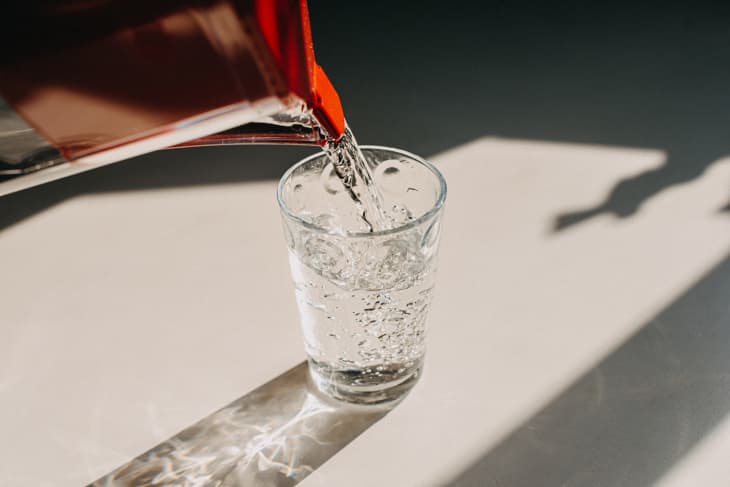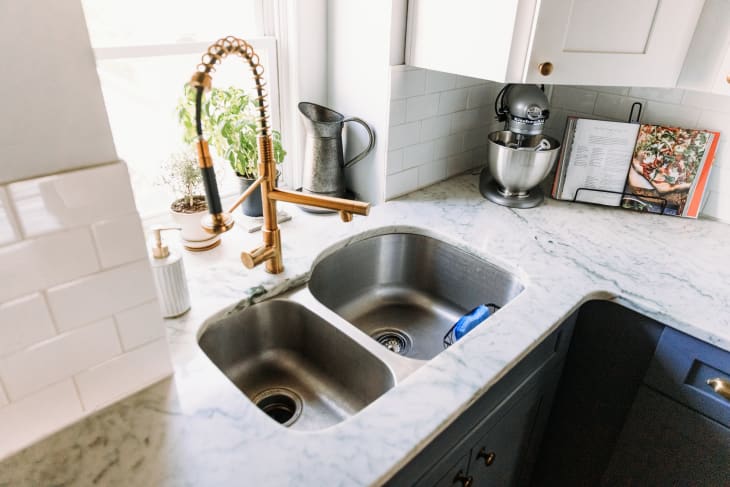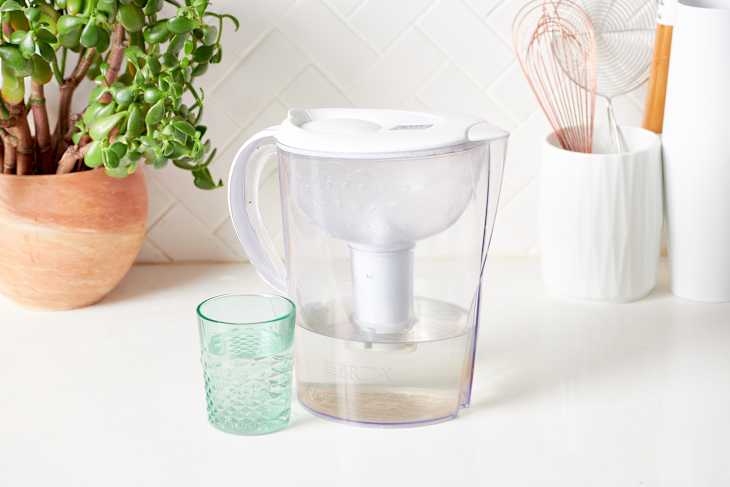

Our home came with a water filtration system that was built right into the kitchen sink. It was nice not having to worry about the tap water every time we opened the faucet, or to constantly fill a Brita pitcher. But not everyone has the luxury of a built-in water filtration system — and, to be honest, my husband and I weren’t even entirely sure why we needed one in the first place. I mean, does it even really work? And what is it actually doing, anyway?
It turns out, there are tons of different types of water filters, and the one your home needs depends on where you live and your local contaminants. I spoke to experts about the different types of filters and how they work, when and why you might need one — and, most importantly, the very best water filters you can buy on any budget, from pitchers to faucet attachments to under-sink systems. Here’s what they had to say.
Do I Need a Water Filter?
Yes, according to the CDC, you need a good water filter no matter where you live or how your water is supplied. Water filters offer several health benefits. By removing impurities, they provide cleaner and safer drinking water, reducing the risk of consuming harmful substances. Filtered water also has improved taste and odor, making it more appealing and encourages people to drink more of it (a need!). Additionally, lots of filters are designed to retain essential minerals, like calcium and magnesium, which are beneficial for overall health.
But first, you need to know which contaminants are likely in your tap water — read on to learn how.
What Type of Water Filter Do I Need?
According to Logan Cox, assistant general manager of John The Plumber Niagara Falls, an essential aspect to look for in a water filter is its ability to target specific contaminants that may be found in your water. “Different filters employ various technologies, such as activated carbon, reverse osmosis, or distillation, to remove contaminants like chlorine, lead, bacteria, pesticides, and other harmful substances.”
Cox also recommends checking if the filter you choose is certified by independent organizations like NSF International, which can speak to its effectiveness in removing specific contaminants.

Types of Water Filters You Should Know
Once you’ve figured out what contaminants are likely in your tap water, there are still lots of considerations when it comes to different types of water filters. Here’s a breakdown of the type of filters Cox says to look for.
- Activated Carbon Filters: These water filters use activated carbon, which has a large surface area with tiny pores to trap and absorb contaminants. Activated carbon filters are effective in removing chlorine, volatile organic compounds, some pesticides, and chemicals that affect taste and odor.
- Reverse Osmosis (RO) Filters: RO water filters use a semi-permeable membrane to remove a wide range of contaminants, including dissolved solids, heavy metals like lead and mercury, fluoride, nitrates, and certain chemicals. The membrane allows water molecules to pass through while blocking larger particles and impurities.
- Ceramic Filters: Ceramic water filters typically consist of small pores that physically trap contaminants like bacteria, protozoa, sediment, and larger particles. They can effectively remove harmful microorganisms and improve water clarity.
- UV Filters: Ultraviolet (UV) water filters use UV light to disinfect water by inactivating bacteria, viruses, and other microorganisms. They are particularly effective in destroying pathogens and ensuring microbiologically safe water.
- Ion Exchange Filters: Ion exchange water filters use resin beads that exchange ions to remove specific contaminants like heavy metals (like lead and copper), calcium, and magnesium. They work by replacing unwanted ions with more desirable ones, typically sodium or potassium.
- Distillation Filters: Distillation water filters involve heating water to create steam, which is then condensed to produce purified water. This process effectively removes impurities, including minerals, heavy metals, bacteria, and some chemicals.

The Best Water Filters You Should Buy
As for top water filter picks, Brian Campbell, founder and “lead water geek” at WaterFilterGuru.com, as well as The Kitchn editors, contributors, and staffers who tested them firsthand, recommend the following:




















